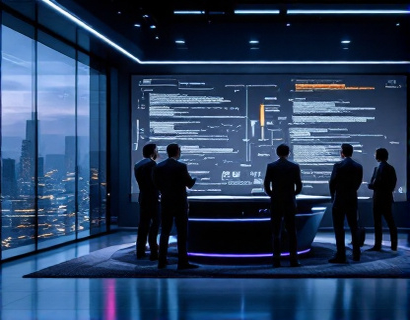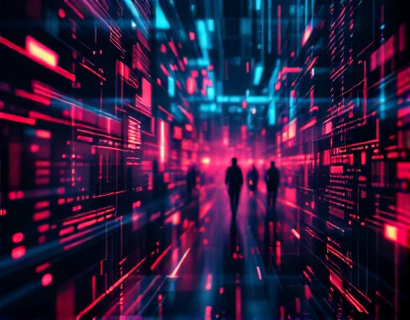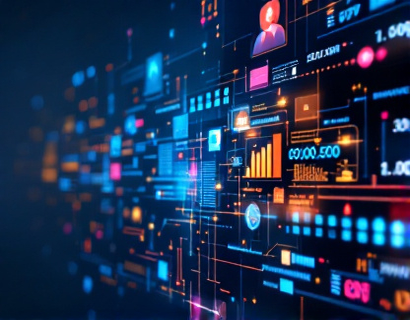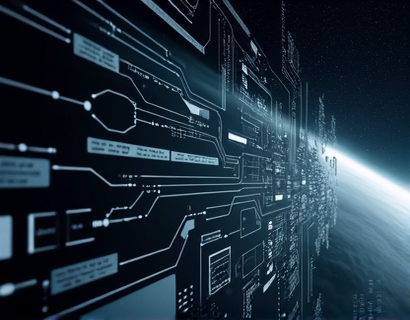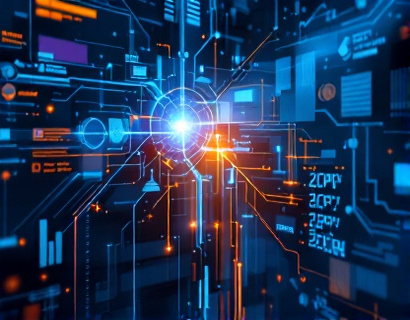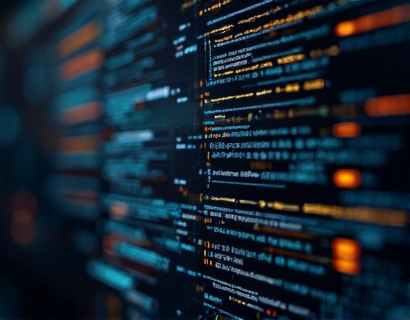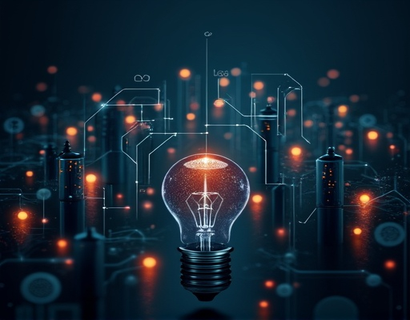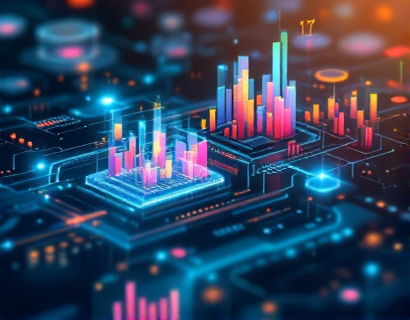Harnessing AI and Crypto: Transforming Ucosystem Applications for a Next-Gen Future
The intersection of artificial intelligence and cryptocurrency is giving birth to a new era of technological advancements, redefining how we interact with digital applications and services. This fusion, often referred to as techfusion, is creating innovative solutions that enhance efficiency, security, and user experience. As we explore this transformative space, it's essential to understand the key components and potential applications that are shaping the future of the digital landscape.
The integration of AI and crypto is not just a technological curiosity but a practical approach to solving complex problems. AI's ability to process vast amounts of data quickly and accurately, combined with the decentralized and secure nature of blockchain technology, creates a powerful synergy. This combination is leading to the development of applications that were once considered science fiction, such as autonomous smart contracts, predictive analytics for market trends, and enhanced security measures for transactions.
Autonomous Smart Contracts
One of the most promising applications of AI in the crypto space is the creation of autonomous smart contracts. Traditional smart contracts are predefined sets of rules executed on a blockchain when certain conditions are met. However, with the integration of AI, these contracts can become self-learning and adaptive. AI algorithms can analyze historical data and real-time information to optimize contract terms, predict potential issues, and even suggest improvements.
For instance, an AI-enhanced smart contract could dynamically adjust the terms of a supply chain agreement based on current market prices, weather conditions, or other relevant factors. This not only increases efficiency but also reduces the need for intermediaries, lowering costs and speeding up processes. The transparency and immutability of blockchain ensure that all parties have trust in the contract's execution, making it a robust solution for various industries.
Predictive Analytics for Market Trends
Another significant application is the use of AI for predictive analytics in cryptocurrency markets. Traditionally, trading in crypto has been based on technical analysis and market sentiment, which can be subjective and prone to errors. AI algorithms can process vast amounts of data from multiple sources, including social media, news articles, and transaction patterns, to identify trends and predict price movements with higher accuracy.
These predictive models can help traders make more informed decisions, potentially increasing their returns and reducing risks. Moreover, AI-driven trading bots can execute trades automatically based on these predictions, providing a hands-off approach to trading. This not only democratizes access to advanced trading strategies but also opens up new opportunities for institutional investors looking to diversify their portfolios with crypto assets.
Enhanced Security Measures
Security is a paramount concern in the crypto world, and AI is playing a crucial role in enhancing the safety of transactions and data storage. Machine learning algorithms can detect anomalies and patterns that indicate fraudulent activities, such as phishing attacks or unauthorized access attempts. By continuously learning from new data, these systems become more adept at identifying and mitigating threats in real-time.
Additionally, AI can improve the security of private keys and wallet management. Biometric authentication, powered by AI, can provide a more secure and convenient way to access crypto assets. For example, facial recognition or fingerprint scanning can replace traditional password methods, reducing the risk of unauthorized access. This not only protects individual users but also strengthens the overall security of the blockchain ecosystem.
Decentralized Finance (DeFi) Innovations
Decentralized Finance, or DeFi, is another area where AI and crypto are converging to create groundbreaking applications. DeFi platforms aim to provide financial services without traditional intermediaries, leveraging blockchain technology to offer lending, borrowing, trading, and more. AI enhances these platforms by providing sophisticated risk assessment tools, personalized financial advice, and automated portfolio management.
For example, an AI-powered DeFi platform could analyze a user's financial history and credit score to offer tailored lending options with optimal interest rates. It could also monitor market conditions and automatically rebalance a user's portfolio to maximize returns while minimizing risk. This level of personalization and automation is transforming the way people manage their finances in the crypto space.
User Experience and Accessibility
The integration of AI is not only improving the functionality of crypto applications but also enhancing the user experience. Natural Language Processing (NLP) technologies enable more intuitive and user-friendly interfaces. Chatbots and virtual assistants powered by AI can guide users through complex processes, answer queries, and provide real-time support. This makes crypto applications more accessible to a broader audience, including those who may not have extensive technical knowledge.
Moreover, AI can help in translating blockchain jargon into plain language, making the technology more approachable. This democratization of knowledge is crucial for the widespread adoption of crypto and AI-driven applications, fostering a more inclusive and diverse community.
Challenges and Considerations
While the potential of AI and crypto integration is immense, there are several challenges that need to be addressed. One of the primary concerns is the regulatory landscape. As crypto continues to evolve, governments and regulatory bodies are grappling with how to oversee these decentralized systems. AI adds another layer of complexity, as regulators must understand and manage the implications of autonomous systems making decisions with significant financial impact.
Another challenge is the technical integration itself. Combining AI with blockchain requires robust infrastructure and expertise. Ensuring that AI algorithms are correctly implemented and securely integrated into blockchain systems is crucial to prevent vulnerabilities. Additionally, the energy consumption of AI and blockchain technologies is a growing concern, prompting the need for more sustainable solutions.
Future Outlook
Looking ahead, the fusion of AI and crypto is poised to drive even more innovation. As AI algorithms become more advanced, we can expect to see more sophisticated applications in areas such as decentralized governance, where AI can assist in decision-making processes within decentralized autonomous organizations (DAOs). The potential for AI to enhance the scalability and interoperability of blockchain networks is also significant, paving the way for a more connected and efficient digital world.
Furthermore, the development of quantum computing could revolutionize both AI and crypto. While quantum computers have the potential to break current cryptographic algorithms, they also offer new opportunities for more secure and powerful computing. The race to develop quantum-resistant cryptography, coupled with quantum-enhanced AI, could lead to breakthroughs that redefine the digital landscape.
In conclusion, the integration of AI and crypto is transforming the ucosystem, creating applications that are more intelligent, secure, and user-friendly. As this techfusion continues to evolve, it will open up new possibilities for individuals and businesses alike, shaping a future where technology serves humanity in unprecedented ways.




